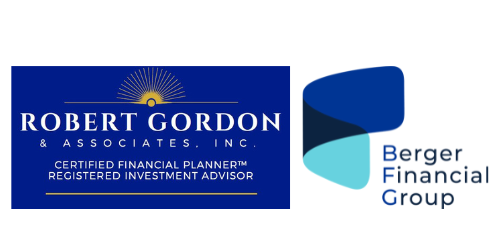Why Average Investors Earn Below Average Market Returns
Submitted by Robert Gordon & Associates, Inc on January 28th, 2019
The results of research which studies investor behavior and analyzes investor market returns, consistently shows that the average investor earns below-average returns.
For the twenty years ending 12/31/2015, the S&P 500 Index averaged 9.85% a year. A pretty attractive historical return. The average equity fund investor earned a market return of only 5.19%.
Why is this?
Investor behavior is illogical and often based on emotion. This does not lead to wise long-term investing decisions. Here's an overview of a few typical money-losing moves that average investors make.
Buying High
Study after study shows that when the stock market goes up, investors put more money in it. And when it goes down, they pull money out. This is akin to running to the mall every time the price of something goes up and then returning the merchandise when it is on sale - but you are returning it to a store that will only give you the sale price back. This irrational behavior causes investor market returns to be substantially less than historical stock market returns
What would cause investors to exhibit such poor judgment? After all, at a 9% return, your money will double every eight years. Rather than chasing performance, you could simply have bought a single index fund, and earned significantly higher returns.
Overreacting
The problem is the human reaction, to good news or bad news, is to overreact. This emotional reaction causes illogical investment decisions. This tendency to overreact can become even greater during times of personal uncertainty; near retirement, for example, or when the economy is bad. There is an entire field of study which researches this tendency to make illogical financial decisions. It is called behavioral finance. The study of behavioral finance documents and labels our money-losing mind tricks with terms like "recency bias" and "overconfidence."
With overconfidence, you naturally think you are above average. For example in one study, 81% of new business owners thought that they had a good chance of succeeding, but that only 39% of their peers did. In another study, 82% of young U.S. drivers considered themselves in the top 30% of their group in terms of safety.
When it comes to investing, overconfidence causes investors to exaggerate their ability to predict future events. They are quick to use past data, and to think they have above average abilities that enable them to predict market movements into the future.
Popular books, like Carl Richard's The Behavior Gap, also do a great job of explaining the behavioral decisions that lead to the large gap between market returns and actual investor returns. Despite the research and education, the gap continues. So what can you do to avoid the fate of the average investor?
Ways to Avoid Money Losing Moves
One of the best things you can do to protect yourself from your own natural tendency to make emotional decisions is to seek professional help and hire a financial advisor. If so, use a disciplined screening process to find the right advisor for you.
An advisor can serve as an intermediary between you and your emotions. If you are going to manage your own investments, you'll need your own way to keep your emotions out of the buy/sell process. Consider using the four tips below to make smarter decisions.
- Do nothing. A conscious and thoughtful decision to do nothing is still a form of action. Have your financial goals changed? If your portfolio was built around your long-term goals (as it should be), a short-term change in markets shouldn't matter.
- Your money is like a bar of soap. To quote Gene Fama Jr., a famed economist, “Your money is like a bar of soap. The more you handle it, the less you’ll have.”
- Never sell equities in a down market. If your funds are allocated correctly, you should never have a need to sell equities during a down market cycle. This holds true even if you are taking income. Just as you wouldn’t run out and put a for sale sign on your home when the housing market turns south, don’t be rash to sell equities when the stock market goes through a bear market cycle. Wait it out.
- Science works. It’s been academically proven that a disciplined approach to investing delivers higher market returns. Yeah, it’s boring; but it works. If you don't have discipline, you probably shouldn't be managing your own investments.

